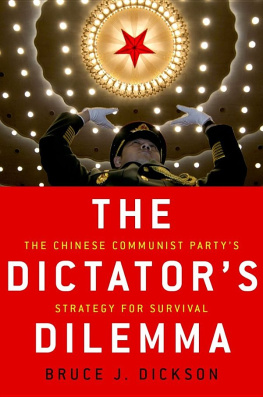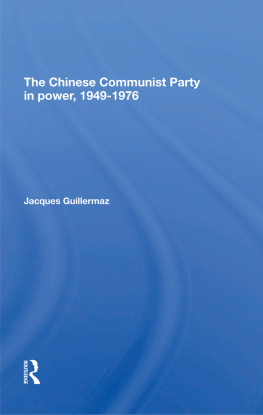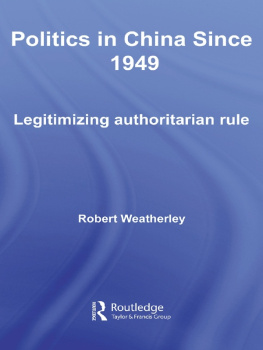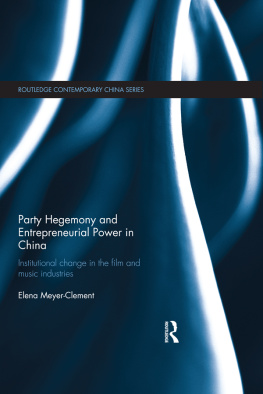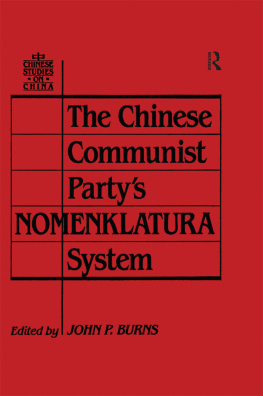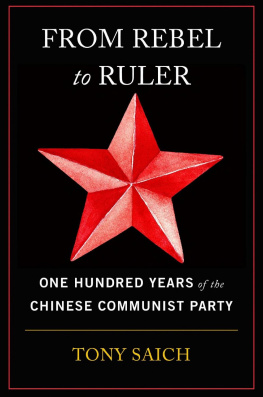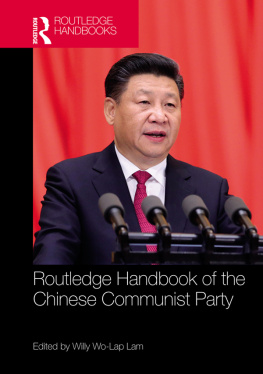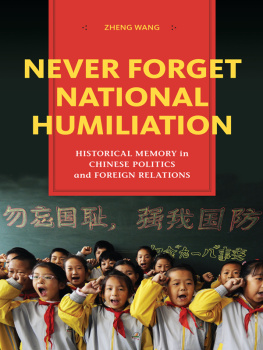The DICTATORS DILEMMA


Oxford University Press is a department of the University of Oxford. It furthers the Universitys objective of excellence in research, scholarship, and education by publishing worldwide. Oxford is a registered trade mark of Oxford University Press in the UK and certain other countries.
Published in the United States of America by Oxford University Press
198 Madison Avenue, New York, NY 10016, United States of America.
Oxford University Press 2016
All rights reserved. No part of this publication may be reproduced, stored in a retrieval system, or transmitted, in any form or by any means, without the prior permission in writing of Oxford University Press, or as expressly permitted by law, by license, or under terms agreed with the appropriate reproduction rights organization. Inquiries concerning reproduction outside the scope of the above should be sent to the Rights Department, Oxford University Press, at the address above.
You must not circulate this work in any other form and you must impose this same condition on any acquirer.
CIP data is on file at the Library of Congress
ISBN 9780190228552
eISBN 9780190228576
In memory of
Mike Oksenberg, Jim Millar, and Lee Sigelman
Mentors too soon gone
CONTENTS


THE ORIGINAL IDEA FOR this book came from a conversation with Shen Mingming, professor in the School of Government and director of the Research Center for Contemporary China (RCCC) at Peking University. He told me about a man he met while visiting a town in China. The man was full of complaints about the towns leaders. He clearly felt they were only out for themselves, did not act in the best interests of the town, and did nothing meriting praise. Shen pointed out that he drove into the town on a newly paved, multi-lane main road that connected the town to other towns and markets. Surely the towns leaders deserved credit for this. But the man dismissed the construction of the new road, saying the construction company was in cahoots with the towns leaders. According to him, the only reason the government approved the project was that the head of the construction company was the brother of the towns top official. Even the building of this important infrastructure project, which brought easier transportation and greater economic opportunities, was not enough to change this mans assessment of the sorry state of the towns government.
This story inspired the central questions of this book. A key part of the Chinese Communist Partys strategy for survival is promoting economic development, improving personal prosperity, and enhancing quality of life in order to generate popular support, but does the public give the Party credit for its policies? Why have repeated public opinion surveys revealed support for a regime despite many examples of corrupt officials, governance failures, and public protest? Above all, how secure is the Partys hold on power? Will its strategy for survival prove to be indefinitely successful, or simply postpone its inevitable demise?
Answers to these questions require detailed information about Chinese public opinion. Fortunately for me, Shens RCCC is Chinas premier public opinion survey center. Together with the RCCCs team of experts, we designed a nationwide probability sample of urban China and developed a survey questionnaire to examine the questions addressed in this book. In addition to Shen, I would like to thank Yang Ming, Yan Jie, Chai Jingjing, and the many dedicated grad students who worked in the center. In different ways, they helped in the drafting of the questionnaire, its implementation in 50 cities across China, and the interpretation of the results.
The survey was first conducted in 2010 and then repeated in 2014. Coming two years before and two years after the change of national leaders in 2012, these surveys provide before and after pictures of the publics assessment of economic, political, and social conditions in China. In particular, they let us see how the priorities and policies of Chinas current leader, Xi Jinping, have influenced public opinion toward the regime as a whole.
Because survey research involves a small army of researchers who work on the questionnaire, select the sample of cities and individuals to create a representative sample, travel around the country to interview people face-to-face, and then enter the responses into a database, it is an expensive style of research. For providing the funds necessary to complete this work, I wish to thank the National Science Foundation (award #SES-0921570), the Smith Richardson Foundation (award #2014-0041), and the Elliott School of International Affairs of George Washington University. And because managing grants requires greater attention to detail than I can muster, I want to thank Matt Greiger, Matt OMara, and Joyce Tso of the Sigur Center for Asian Studies. They paid the contracts, hired the research assistants, and prepared the financial reports required by the projects sponsors. Their expert handling of the projects logistics allowed me to concentrate on its substance.
Over the years, I have given talks related to the themes and findings of this book at a variety of universities and think tanks and have benefited enormously from the discussions. For this, I would like to thank the people at the University of Wisconsin, University of Pittsburgh, Villanova University, University of Pennsylvania, University of Iowa, Indiana University, University of Toronto, School of Oriental and African Studies, Fudan University, Shanghai Jiaotong University, Korea University, East Asia Institute (Seoul), Seoul Forum on International Affairs, University of Hong Kong, Peking University, Duke University, and of course my own school, George Washington University.
Many people have made helpful comments on various parts of the argument and evidence. Andrew Nathan and David Shambaugh read the entire manuscript and made innumerable suggestions for revisions. I have also benefited from conversations and feedback from many friends and colleagues, including Yuen Yuen Ang, Steve Balla, Brandon Bartels, Mayling Birney, Meina Cai, Yun-han Chu, Joe Fewsmith, Evgeny Finkel, Mark Frazier, Mary Gallagher, Pete Gries, Henry Hale, Enze Han, Tim Hildebrandt, Ron Inglehart, Jing Yijia, John Kennedy, Scott Kennedy, Lai Hairong, Pierre Landry, Eric Lawrence, Lianjiang Li, Zhou Liao, Liu Mingxing, Jie Lu, Xiaobo Lu, Melanie Manion, Meng Tianguang, Carl Minzner, Minxin Pei, Allison Quatrini, Tom Rawski, Ben Read, Bill Reissinger, Tony Saich, Victor Shih, John Sides, Yeling Tan, Wenfang Tang, Paul Wahlbeck, Jeremy Wallace, Yuhua Wang, Marty Whyte, and Dali Yang.
I have had the good fortune to work with several talented graduate students on this project. Jackson Woods was involved from the start and provided valuable input on the sampling design, the questionnaire, data collection, data analysis, and the interpretations I gave to the data. Chunhua Chen joined the project midway, collecting and analyzing data, doing additional background research, and providing a useful reality check on the main themes of the book. Both of them worked on revising the questionnaire for the second wave of the survey and read the entire manuscript in draft form. I quite literally could not have done it without them.

